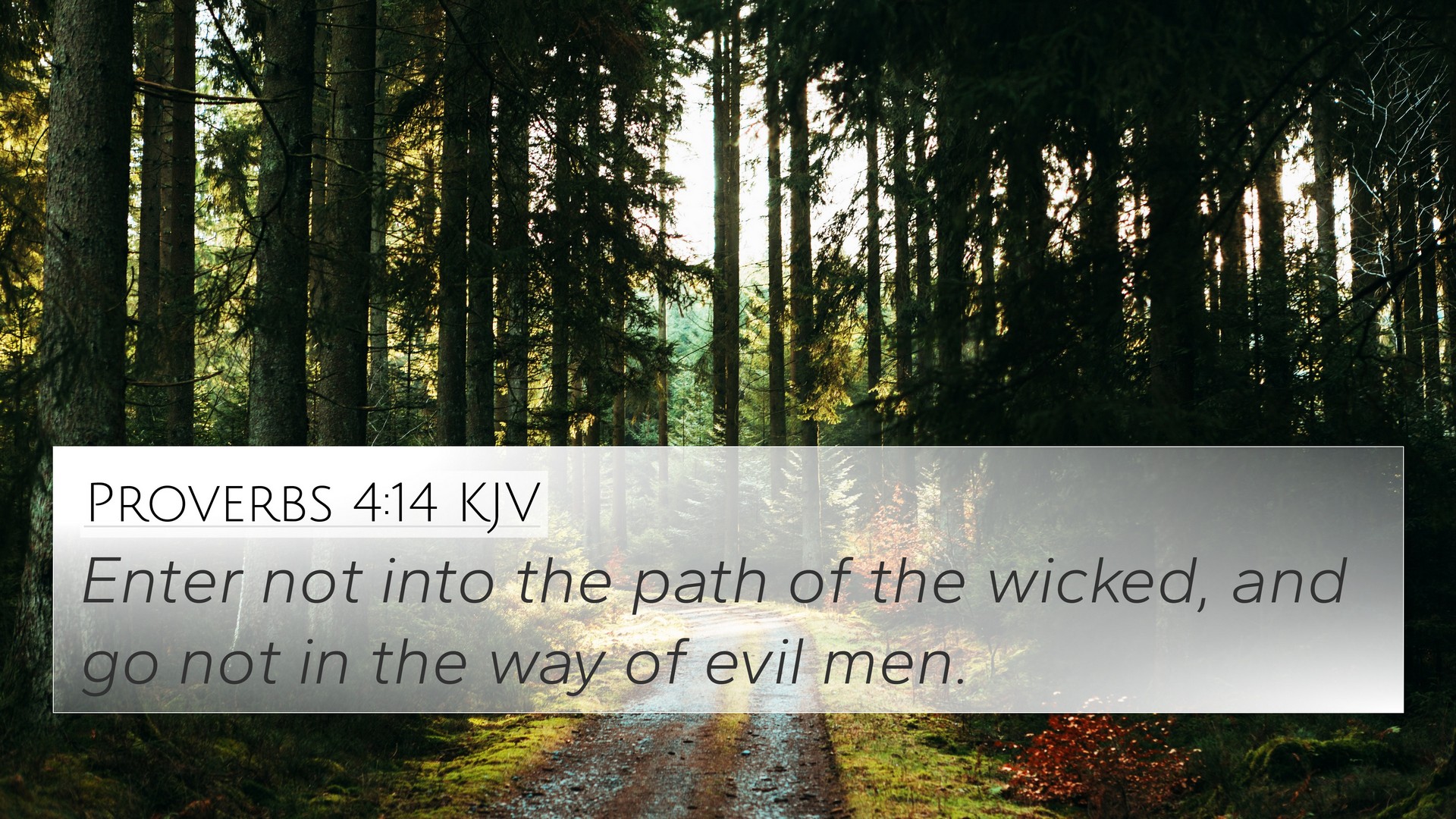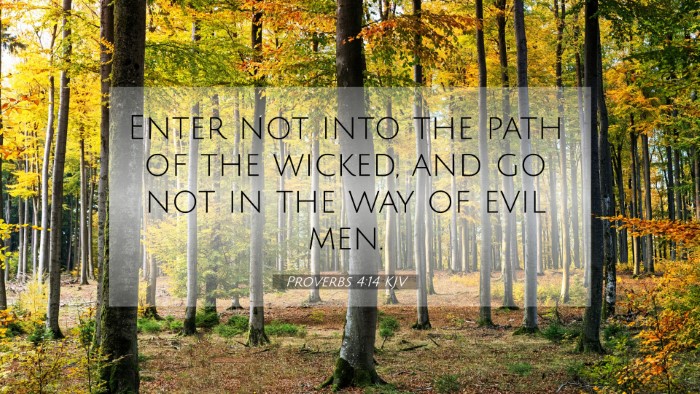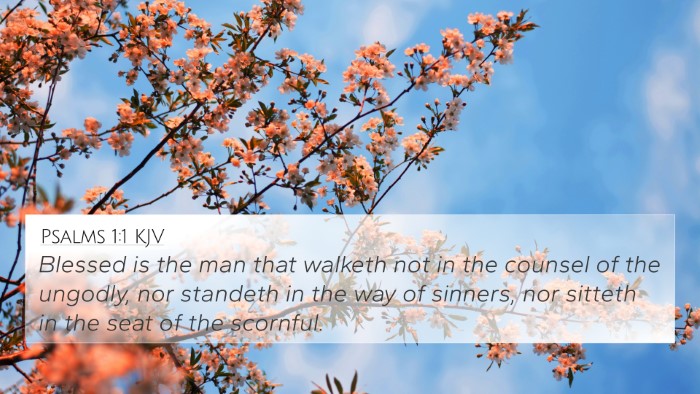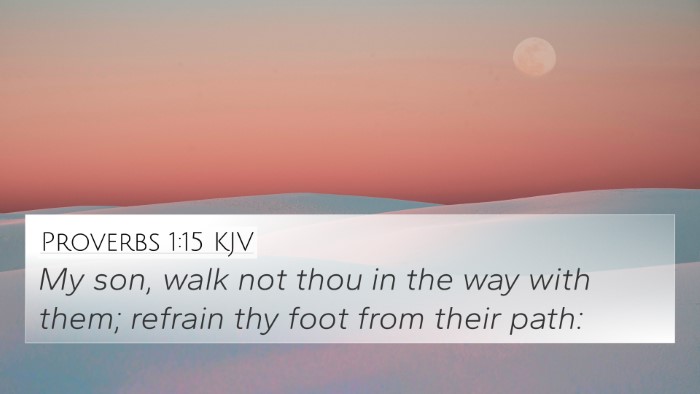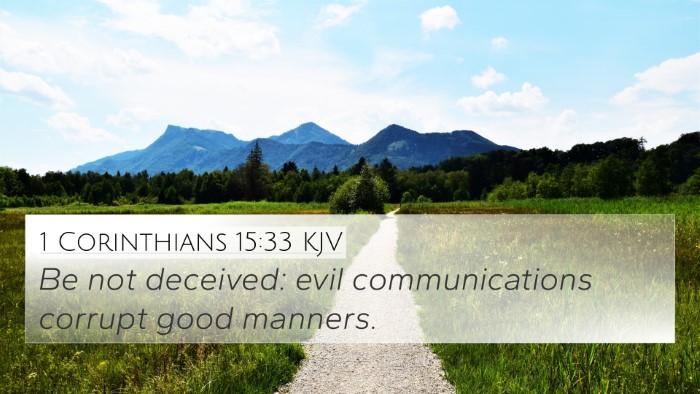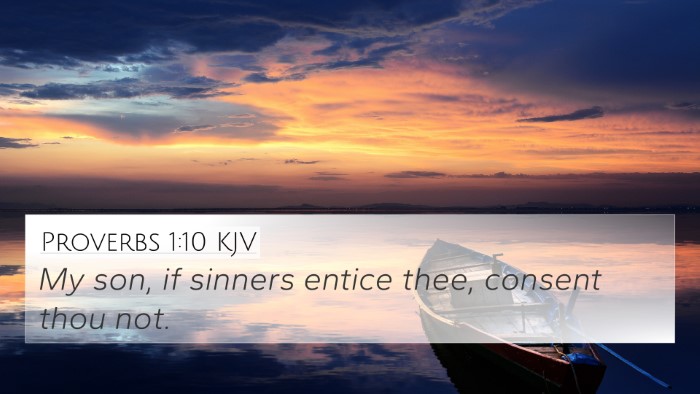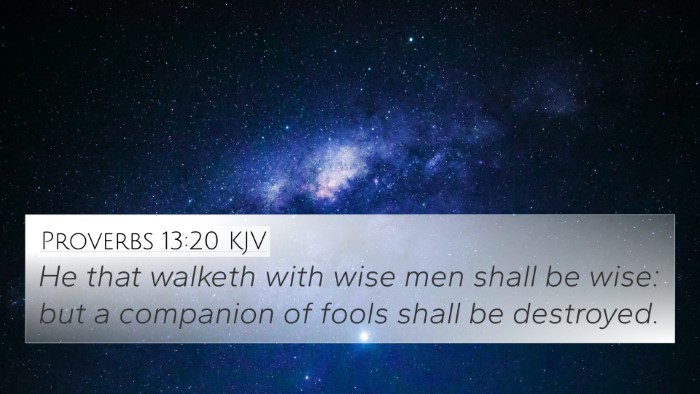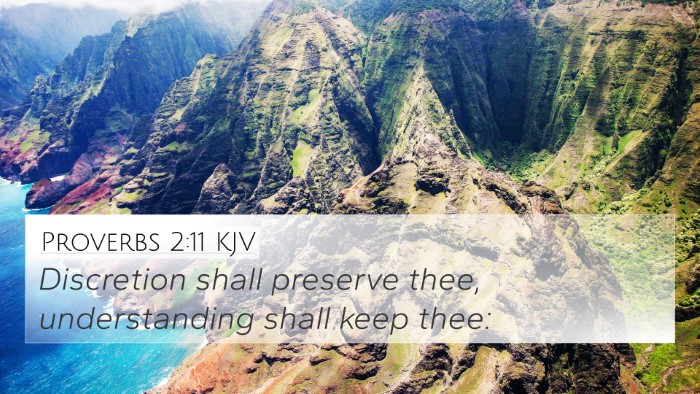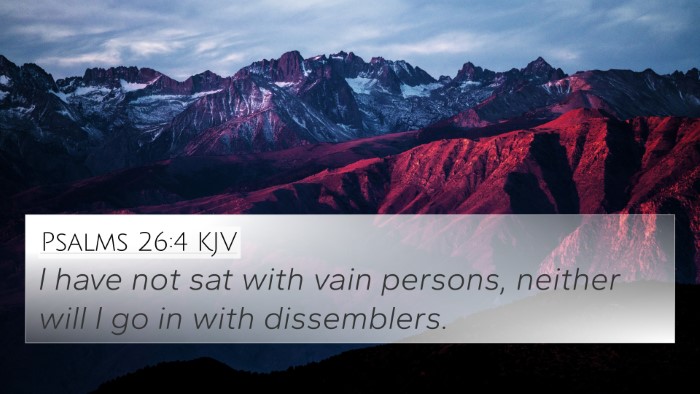Understanding Proverbs 4:14
Proverbs 4:14 states, "Enter not into the path of the wicked, and go not in the way of evil men." This verse serves as a critical admonition regarding the wisdom of choosing one's associations and pathways in life. The counsel here emphasizes the importance of avoiding the company of those who engage in wrongdoing, thereby maintaining one's integrity and moral standing.
Meaning and Interpretation
In the context of Proverbs, this verse comes from a series of instructions urging the listener to pursue wisdom actively. Matthew Henry, Albert Barnes, and Adam Clarke emphasize the necessity of discernment in relationships, as the company we keep can significantly influence our moral choices.
- Matthew Henry: He elaborates on the dangers of associating with the wicked, suggesting that such paths lead to destruction and moral decay. He emphasizes that the righteous must be vigilant in avoiding these destructive paths.
- Albert Barnes: He underscores the idea that this verse reflects a broader theme in Proverbs, where the pursuit of wisdom and righteousness involves conscious choices about one's companions and the environments one engages with.
- Adam Clarke: Clarke points out that the "path of the wicked" represents not just physical places but also mental and spiritual states of being, where embracing evil thoughts leads one away from the path of righteousness.
Cross-References and Connections
This verse resonates with numerous other biblical passages that highlight the importance of avoiding evil influences and choosing the path of righteousness:
- Psalm 1:1: "Blessed is the man who walks not in the counsel of the wicked." This verse provides a similar warning against following the advice of those who live unrighteous lives.
- Proverbs 1:10: "My son, if sinners entice you, do not consent." This reinforces the idea of resisting temptations to join in with those whose motives are not aligned with God's will.
- Proverbs 13:20: "Whoever walks with the wise becomes wise, but the companion of fools will suffer harm." This illustrates the significance of choosing wise companions to promote one’s own wisdom and growth.
- 1 Corinthians 15:33: "Do not be deceived: bad company ruins good morals." This New Testament verse mirrors the wisdom literature sentiment about the effect of company on one’s moral integrity.
- James 4:4: "Friendship with the world is enmity with God." It expresses the serious nature of entering into partnerships or relationships that stand against God's values.
- Matthew 7:13-14: "Enter by the narrow gate. For the gate is wide and the way is easy that leads to destruction." Here, Jesus emphasizes the importance of choosing the narrow path, which can be contrasted with the wicked way mentioned in Proverbs.
- Philippians 3:18-19: "For many, of whom I have often told you and now tell you even with tears, walk as enemies of the cross of Christ." Paul warns against following those who live contrary to the teachings of Christ.
- Romans 12:2: "Do not be conformed to this world, but be transformed by the renewal of your mind." This call for transformation emphasizes separating from worldly influences.
- 2 Corinthians 6:14: "Do not be unequally yoked with unbelievers." This advises believers to be wary of close associations that could lead them astray.
- 1 Peter 3:17: "For it is better to suffer for doing good, if that should be God’s will, than for doing evil." This further reiterates the value of staying on the path of righteousness despite possible adversities.
Thematic Connections in Scripture
The themes of wisdom, righteousness, and the need for discernment are prevalent throughout Scripture. The avoidance of evil and the pursuit of righteous paths are central to both Old and New Testament teachings, forming a thematic thread that connects various biblical texts:
- Wisdom Literature: The Book of Proverbs as a whole emphasizes wisdom and its fruits, consistently advising readers to choose the path of righteousness.
- Parables of Jesus: Many of Christ’s parables illustrate the consequences of choosing wrong paths, and the joy of following Him as the ultimate source of truth and goodness.
- Theme of Separation: Various passages promote the idea of separating oneself from wickedness, which is a recurring motif throughout the Bible.
Practical Applications
In reflecting on Proverbs 4:14, believers are encouraged to consider practical applications for their lives:
- Assessing Relationships: Take stock of current friendships and influences. Are they leading you closer to or further away from your spiritual goals?
- Seeking Wise Counsel: Surround yourself with individuals who uplift and challenge you to grow in your faith.
- Establishing Boundaries: Don’t hesitate to set boundaries with those who consistently lead you toward poor choices.
- Engaging in Community: Find community within a church or fellowship that embodies the teachings of Christ and encourages you to walk in righteousness.
Conclusion
Proverbs 4:14 serves as a timeless reminder of the importance of wisdom in navigating the complexities of life. By heeding this counsel, believers can cultivate a life characterized by integrity, righteousness, and a dedication to the path that leads to fulfillment. The cross-references reveal a rich tapestry of biblical wisdom that supports this journey, emphasizing the critical nature of companionship and moral choices. Each verse serves as a building block in understanding how to live a life aligned with divine purpose.
